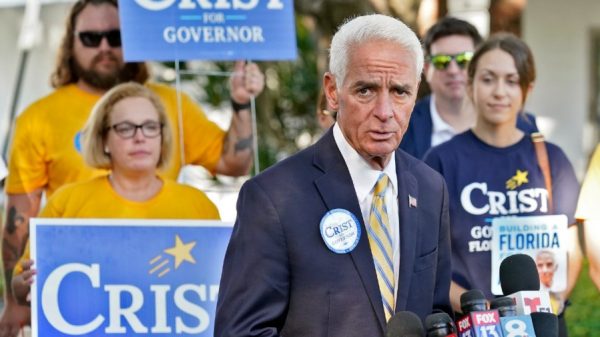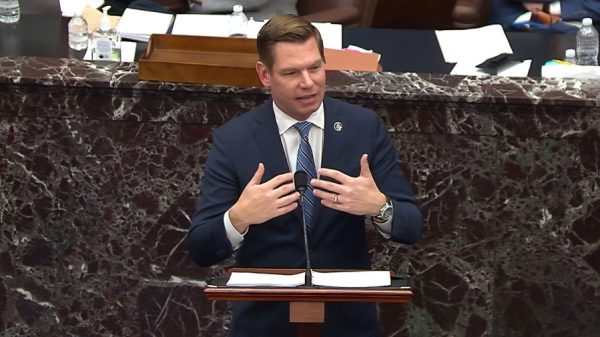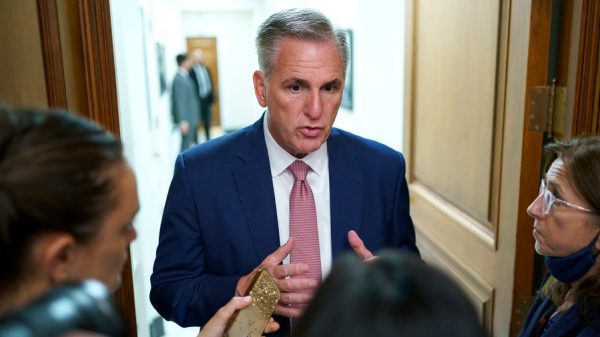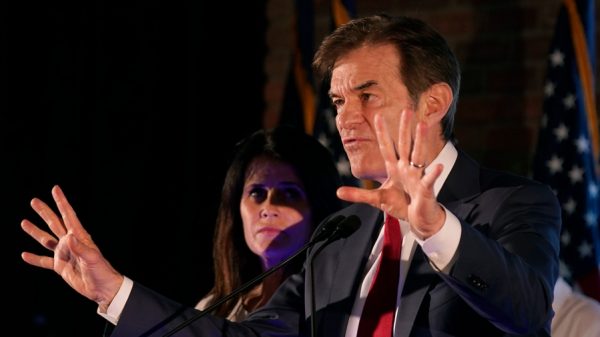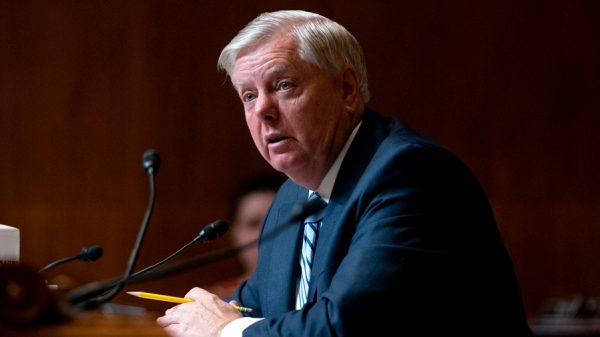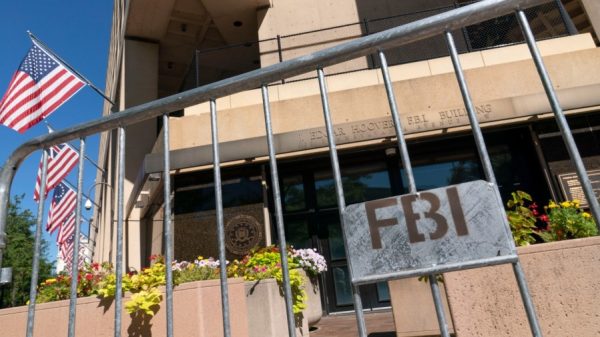Liberal lawmakers are pressing Democratic leaders in the House to not include a side deal undercutting environmental reviews worked out with Sen. Joe Manchin (D-W.Va.) in a short-term measure funding the government.
House Natural Resources Chairman Raúl Grijalva (D-Ariz.) is circulating a letter asking leadership to separate the Manchin deal out from a continuing resolution that would temporarily avert a government shutdown.
“Don’t attach it to a budget, to a CR, must-pass legislation and therefore take this essential Republican agenda and have Democrats pass it,” he told The Hill earlier this month.
The issue is expected to come to a head in September, when lawmakers return from recess, as Democrats try to secure funding for the government and prevent a shutdown.
The deal was part of the agreement Manchin made with Democratic leaders as they won his support for their now-passed climate, tax and health care bill.
Under the deal with Manchin, worked out by President Biden, Senate Majority Leader Charles Schumer (D-N.Y.) and House Speaker Nancy Pelosi (D-Calif.), the trio agreed “to pass comprehensive permitting reform legislation before the end of this fiscal year,” which ends on October 1. The provisions are designed to expedite energy and infrastructure projects subject to environmental reviews.
That sets up a potential shutdown crisis if progressives block a funding bill over the inclusion of the permitting reform language and Democrats can’t find the votes elsewhere.
Democrats do not want to shut down the government months before the midterm elections, so an actual shutdown is highly unlikely.
Grijalva acknowledged that it would likely be difficult for many members to vote against funding the government.
“This is not trying to torpedo anything. This is saying the [continuing resolution] and the budget is critical, yes, but let’s do this other one where everybody is accountable,” he said.
While Grijalva’s office declined to say Thursday how many lawmakers are signing his letter, at least a few others have signaled resistance to the deal.
“If we want to streamline permitting for critically important projects that help solve the climate crisis there’s absolutely a conversation to be had and maybe a bill that would help with that, but this framework that came out of the smoke-filled room with Manchin and Schumer doesn’t work for me,” Rep. Jared Huffman (D-Calif.) told The Hill.
He also argued the standoff likely wouldn’t cause a shutdown, suggesting a clean measure known as a continuing resolution or “CR” could be approved to fund the government.
“You can tell members ‘if you vote against this you’re shutting down the government,’ but most of us are a little smarter than that and we know that you can have a backup CR ready to go that funds the government without all the fossil fuel baggage,” Huffman said.
If progressives do make a stand, it will complicate life for House Democratic leaders.
Democrats enjoy a very narrow majority in the House, meaning even a handful of progressive votes could block a measure to fund the government — if there’s not the Republican support to make up the difference. The more signatures on the Grijalva letter, the more leverage progressives could have.
Democratic leaders would face a difficult choice between passing a clean continuing resolution and potentially angering Manchin; convincing their own members to shed their environmental concerns and back the Manchin side deal; or leaning on GOP votes to prevent a shutdown.
Getting Republicans on board to counter any liberal defections is a very real possibility — dozens of GOP lawmakers supported a CR to prevent a shutdown last September — although Pelosi’s style has been to unite Democrats before bringing virtually any legislation to the floor, thereby avoiding a reliance on votes across the aisle. A wild card in the debate could be the inclusion of funding for natural disasters, which could sweeten the package for on-the-fence lawmakers in both parties.
A number of GOP members do support the permitting changes advanced by Manchin. Whether they’ll want to back a Democratic funding measure that includes them — or allow Democrats to fight it out internally ahead of the elections — is another question.
In the Senate, Democrats will need 10 GOP votes to back a package and overcome a filibuster.
Senate Republicans felt spurned by Manchin’s agreement with Schumer on the Inflation Reduction Act, which was passed under special budget rules in the Senate that avoid a filibuster.
The deal was announced immediately after the Senate approved a separate bipartisan bill to strengthen the semiconductor industry. Senate Minority Leader Mitch McConnell (R-Ky.) had previously threatened not to support the semiconductor bill if Democrats pursued their partisan package, and that measure moved at a time when the larger climate, tax and health care bill looked dead.
Sen. Lindsey Graham (R-S.C.) has pledged to vote against the permitting deal on principle, even if he may actually like the policies included in it.
“I will not vote for a continuing resolution that is part of a political payback scheme,” Graham said in a press conference this month. “Senator Manchin, if you think you’re going to get 60 votes to get the sweeteners that can’t be done in reconciliation, you need to think long and hard about what you’re doing.”
In a statement to The Hill on Thursday, Republican Conference Chairman and top GOP senator on the Energy and Natural Resources Committee John Barrasso (Wyo.) signaled that there could be another barrier to Manchin’s deal: The permitting language, which may not be strong enough to win GOP support.
“This narrow proposal does not go nearly far enough. It will not prevent the Biden administration from continuing its war on American energy,” he said.
A summary of the agreement released by Manchin’s office said the deal would direct the president to keep a list of 25 high priority energy and infrastructure projects that would get prioritized permitting. Infrastructure projects in general would also be expedited under maximum timelines for environmental reviews and limits to state and tribal authorities from blocking projects that run through their waters.
The summary also includes the completion of the Mountain Valley Pipeline, a controversial pipeline that would bring natural gas from West Virginia to Virginia.
A separate summary that has circulated among Senate Democrats in recent days. It makes a climate case for backing the deal.
The summary, which was obtained by The Hill, provided new details: saying that a certain number of these 25 projects have to be either renewables, electric transmission, critical minerals, hydrogen or fossil fuel projects that “significantly reduce emissions.”
It also said that the deal does not change federal environmental law requirements, instead setting “target timelines” for environmental reviews.
“The proposed Senate Permitting Package would help expedite the nationwide buildout of power sector transmission infrastructure that is critical to deploying the cleaner generation needed to hit President Biden’s climate goals,” the summary said.
The fight over passing the measure to keep the government open is likely to take more twists and turns in September as lawmakers scramble to get their work done and return to their home districts ahead of the midterms.
Congress will return to a lame-duck session in November, when it will likely need to approve another package funding the government into the new year.











